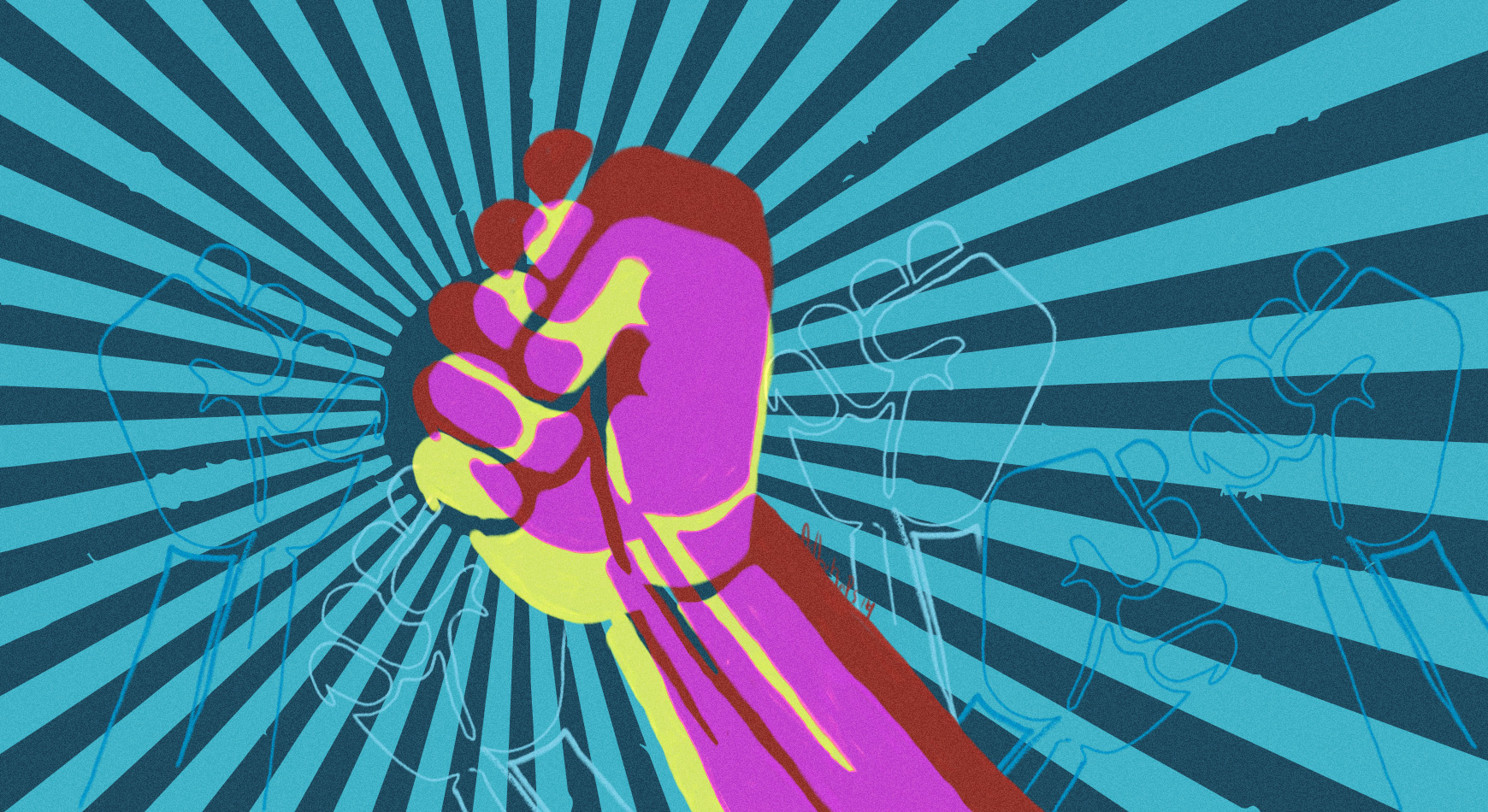I recently visited a major private housing estate in Jakarta’s suburb, where the tree-lined roads are wide and smooth, and houses are grouped into gated clusters. The main boulevards have dedicated bicycle lanes, which are still rare in Jakarta.
This haven of order, cleanliness and convenience was ruined, however, by the sight of cars and buses that parked illegally on the cycle paths.
I was annoyed, but hardly surprised. After all, bicycle holds a low place in Jakarta’s traffic hierarchy, just slightly above pedestrians, who often have to compete for walking space on the sidewalk against motorcycles, food stalls and other bigger things. Another stretch of dedicated bicycle path at South Jakarta’s Blok M district is used more as an extra lane for motorcycles and auto rickshaws.
But this made me ponder a bigger question: why is it that for many Indonesians, the natural impulse is to break rules that are designed to keep things in order at the expense of other people?
You do not have to look further than at the road, where motorists solve their own problems by becoming a source of problems for other people.
No parking space? Just park under the no-parking sign.
Stuck behind two slow cars in the toll way? Use the shoulder to overtake, often at 90km/per hour.
Bad traffic jam? Drive on the bus way lane.
Heavy rain? Park your motorbike in the middle of the road under a pedestrian bridge to take shelter with 15 other motorcyclists (who cares that it will cause traffic congestion?).
These seem like minor irritating road habits, but they are actually symptomatic of a bigger problem that permeates through our culture: a selfish attitude that disregards the larger public interest. It’s a me-first mentality – perhaps a collective residual psyche from a past when things were not always available for every one (if psychological baggage can be passed through genetic transmission). It also justifies anything from littering, cheating to briberies with the logic of “if other people do it, it won’t make a difference if I do it too”.
To me, this is what separates the developing world from the developed one. It is a hurdle to productivity and it nurtures a culture of corruption. It also explains why religious hypocrisy is more tolerated than reasons and honesty. Some people put a rather offensive, but spot-on label on this: the third-world mentality.
During his campaign, president-elect Joko Widodo espouses a “mental revolution”, which is basically a grass root movement to change a negative “culture” that among other fosters corruption, intolerance to difference, greed, and violent tendency to resolve problems. He argues that a fundamental change in mindset to alter attitude and behavior will eventually improve our conducts in economic activities, politics, science and technology, arts, and religion.
That lofty goal is admirable and the movement should’ve started four decades ago, when Indonesia was still a much younger nation. But I am a believer that no movement will succeed without conscious individual participations.
So, for me, a mental revolution is more a transformation of individual ethics, starting with letting go of our negative habits and making habits out of virtues.
For example, as much as people talk about morality here, nobody really talks about the importance of honesty, a moral character that is the foundation of integrity, truthfulness, trustworthiness, fairness and sincerity.
If we make a habit out of honesty, cheating in exam will not be as acceptable as it is today, abusing public facilities will be frowned upon, and receiving briberies or gratuities is a disgrace. This will lead to lower corruption level and higher productivity.
Virtue is as much a moral quality as it is a practical action – the Japanese samurai knew this. So I came up with a list of 10 ways we can do individually to support the collective goal of mental revolution:
1. Do not take that which does not belong to you
This includes library books, the DVD you borrowed from your friends, the magazines in the doctor’s waiting room, the article or paper that someone else’s wrote (unless you credit them properly), and the illicit money from the marked-up project your government official client shares with you.
2. Take pride in the process, not the just the results
If you win something by cheating, that is not a success. Teach your kids that sometimes learning is more important than passing an exam, that mastering a skill (like the piano, tennis or writing) requires efforts and sacrifice. Never expect instant gratification; and, remember, in order to compete, one must be prepared to accept losses.
3. Obey the rules
Traffic lights and rules are there for a reason: to prevent accident and reduce congestions (though not always successfully). Know that when you create that extra fourth lane in a in a three-lane street, it only leads to a bottleneck at the intersection. Do not smoke in a non-smoking area. Switch off your phones in the plane until you reach the airport gate.
4. Treat others equally and fairly
Your domestic assistants such as your maids, gardeners, security guards and drivers may not work under a legally binding labor contract, but all the more reasons for you to sympathize with their plights. Give them days off. Be fair with their workload. Also, judge people not by the color of their skin, or by which God they worship (or how they choose to practice their beliefs), or whether or not they come from a reputable family. Everyone is equal until they are proven to be jerks, or corrupt, unproductive or rude persons.
5. Love and protect the environment
Keep your trash in your pocket or in the car until you find a rubbish bin. Do not litter! If possible, recycle, or at least separate your organic and non-organic garbage to make it easier for scavengers. Reduce your waste by being a mindful consumer. You do not have to buy a new gadget once a year. Ride bicycle more, carpool or take public transport if possible. Turn off the light when you’re not in the room, and switch off the TV when you’re not watching. And, for the love of trees, please don’t keep your car engine running when idle.
6. Stop taking part in corruption
The economy of corruption also follows the supply and demand principle. Instead of slipping a Rp 50,000 bill into the palm of a traffic police for a “peaceful solution”, let him write you a ticket. You’ll achieve two things by doing this: a) You find out that it takes less than 5 minutes to settle the ticket in court, and, b) The amount of money you pay for your violation will deter you from breaking the law again. The same goes for renewing your ID card, driver’s license or passport and other administrative paper works. The more people insist on going through the official channel only, the less the need for middlemen to collude with officials.
7. Be on time
When you’re late to a meeting, you rob people of their precious time. The same goes with those who always miss their deadlines, or keep other people in their table hungry by taking their sweet time with the menu and indulging in their indecision before ordering food (Ok, this might be a personal pet peeve).
8. Show some respect for other people
Just because there are 10 of you in one table, doesn’t mean you should deafen other people in the restaurant with your loud conversation. Say “please” and “thank you” sincerely to restaurant servers, shop and tollgate keepers, street buskers, taxi drivers, even the telemarketers. Remember, everyone you meet is fighting a battle.
9. Be patient and your turn will come
You do not have to jostle against other passengers at the baggage claim. Really, it doesn’t make your luggage arrive any faster on the conveyor belt. Queue jumping is just unacceptable and exposes your crude nature. Allow people to cross the streets when they have the right of way. And be nice to cyclists – unlike motor vehicles, they produce nearly zero emissions.
10. Be mindful of other people’s space
Unless you’re in vast area, it is not OK for more than two people to walk side by side on the sidewalk or at the mall and block other pedestrians. The top of an escalator is not a place to have a small talk, even with someone you haven’t met for years. In fact, when you’re on an escalator always stand on one side – left side in Indonesia, most likely – so people who might be in a hurry don’t get stuck behind you. Let people out of the elevator first before you enter it. And, remember this when you’re in a waiting room or in a packed café: chairs are made for people, not branded handbags, so don’t hog the seats.
Indonesian philosopher Karlina Supelli wrote in an essay on mental revolution that a real civil society is the movement of citizens to conduct a sustainable transformation for a civilized society.
From time to time, we need to ask ourselves, have we done enough to make our place better for others?
Follow @dasmaran on Twitter








Comments